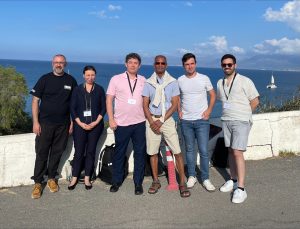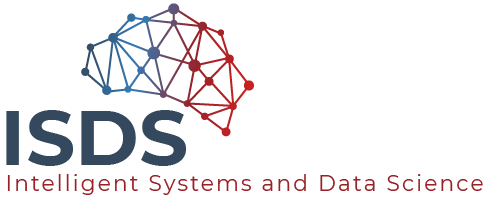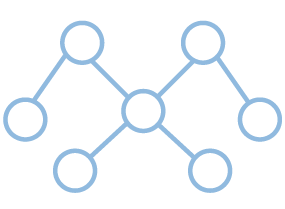
Dr. Angelo Salatino, Dr. Francesco Osborne, and Prof. Motta recently participated the 2024 edition of the Extended Semantic Web Conference (ESWC), where they showcased their significant contributions to the field through various research papers.
ESWC is a premier international conference focusing on semantic web technologies, artificial intelligence, and knowledge graphs. With a mission to connect researchers, practitioners, and industry leaders, ESWC provides a platform for sharing groundbreaking advancements, fostering collaboration, and stimulating innovation in the field of linked data and semantic technologies. The 2024 edition, themed “Fabrics of Knowledge: Knowledge Graphs and Generative AI,” specifically highlighted the growing significance of knowledge graphs and their convergence with Generative AI (GenAI). This emphasis reflects the increasing importance of structured knowledge representation and its application in driving intelligent systems and applications. ESWC 2024 showcased the latest research in areas such as knowledge graph construction, natural language processing, machine learning, and reasoning, with a particular focus on how these technologies intersect with GenAI to create more intelligent and context-aware applications.
At the main conference, Angelo and Francesco presented a research paper in the main track titled “Large Language Models for Scientific Question Answering: an Extensive Analysis of the SciQA Benchmark.” This paper explores the effectiveness of large language models in answering scientific questions, offering a comprehensive analysis of the SciQA benchmark.
In addition to the main track Dr. Salatino was involved in two workshop papers:
– Investigating Environmental, Social, and Governance (ESG) Discussions in News: A Knowledge Graph Analysis Empowered by AI: This paper delves into how AI and knowledge graph analysis can be used to investigate ESG discussions in news media.
– Leveraging Language Models for Generating Ontologies of Research Topics: This research focuses on how language models can be utilized to generate ontologies for various research topics, providing valuable insights into the organization and categorization of research areas.
Dr. Osborne made additional significant contributions to the conference by co-organising two workshops:
– 3rd International Workshop on Knowledge Graph Generation from Text (Text2KG): This workshop focused on the latest advancements in generating knowledge graphs from textual data.
– 2nd International Workshop on Semantic Technologies and Deep Learning Models for Scientific, Technical and Legal Data (SemTech4STLD): This event explored the intersection of semantic technologies and deep learning models, particularly in the context of scientific, technical, and legal data.
Dr. Osborne also delivered a keynote speech at the Natural Scientific Language Processing and Research Knowledge Graphs (NSLP 2024), where he shared his insights and expertise on the integration of natural language processing and knowledge graphs in scientific research.
Furthermore, Dr. Osborne was involved in two additional papers:
– Automating Citation Placement with Natural Language Processing and Transformers: This paper discusses the use of NLP and transformer models to automate the placement of citations in academic writing.
– Knowledge Graphs for Digital Transformation Monitoring in Social Media: This research examines how knowledge graphs can be leveraged to monitor digital transformation trends on social media platforms.
Finally Prof. Motta, organized a workshop titled “Actionable Knowledge Representation and Reasoning for Robots (AKR³).” The workshop focused on how robots can be endowed with common sense reasoning to better navigate and perform tasks in dynamic home environments.
Next year, ESWC will take place in Portorož (Slovenia) and our team looks forward to contributing to another brilliant edition.



 Scholarly Knowledge Mining
Scholarly Knowledge Mining
 Digital Humanities
Digital Humanities
 Data Science
Data Science
 Smart Cities and Robotics
Smart Cities and Robotics